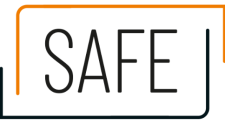
The 'Foster cooperation for improving access to protection' (SAFE) project was a 3-year initiative implemented and coordinated by Forum réfugiés, in partnership with the Federation of Protestant Mutual Aid (FEP), the French Red Cross (CRF), the Italian Federation of Protestant Churches (FCEI), the Italian Red Cross (CRI), the Mediterranean Universities Union (UNIMED), and Oxfam Italy.
The project facilitated the exchange of experiences, expertise and practices among organisations involved in the implementation of private sponsorship schemes and resettlement programmes.
Project Goal
UNHCR estimates that 1.44 million refugees are in need of resettlement. In that context, expanding safe legal pathways to third countries is urgently needed to support countries hosting large numbers of refugees and increase refugees’ access to protection.
This project aimed to identify the capacity building needs in private sponsorship schemes expressed by partners and associates and to promote best practices and related materials. It worked to improve access to protection through private sponsorship schemes and complementary pathways, such as humanitarian corridors, family reunification and student mobility, for beneficiaries of international protection.
How it works
At the EU level, the project identified the capacity building needs in private sponsorship schemes expressed by partners and associates via the organisation of workshops. European and international sponsor organisations were invited to participate in these workshops. Based on these needs, meetings, webinars and 'look and learn' visits for the exchange of practices were organised between partners and other actors (such as organisations involved in resettlement programmes or which were willing to be involved in private sponsorship schemes).
At national level, discussions around private sponsorship schemes were organised in France and in Italy. In France, this would enhance cooperation between organisations involved in complementary pathways, private sponsorship schemes and resettlement programmes. In Italy, an Italian community sponsorship programme model was designed and discussed with key actors, and publicly presented in a national conference.
In terms of advocacy, position papers were written and disseminated, one by the international platform and one by each national platform. A final European-level seminar and corresponding national events presented and disseminated the findings of the project, its recommendations and the tools produced.
Results
The project produced a large number of resources, including several videos, position papers, synthesis notes and pilot projects. See for example:
- videos detailing 1) the humanitarian corridor procedure to France, 2) the procedure for family reunification in France, 3) the process of university corridors to France, and 4) family reunification procedures, humanitarian corridors and university corridors to France.
- a toolkit (FR) on complementary pathways to resettlement and a toolkit (IT) on family reunification
- an article entitled 'Resettling refugees through community sponsorship: a revolutionary operational approach built on traditional legal infrastructure'
- a report entitled 'Like pebbles in a pool: the effect of community sponsorship on knowledge about, and attitudes to, refugees in less-diverse communities'
Who benefits
Beneficiaries are actors across the EU working with private sponsorship schemes and complementary pathways for the resettlement of refugees. By extension, beneficiaries of the international protection and persons in need of protection and the wider EU community will benefit from the project's initiatives.
Funding and resources
The initiative is co-funded by the European Commission via it's Asylum, Migration and Integration Fund (AMIF) programme.
About this good practice
- Geographic area
- EU Wide
- Website
Details
- Posted by
